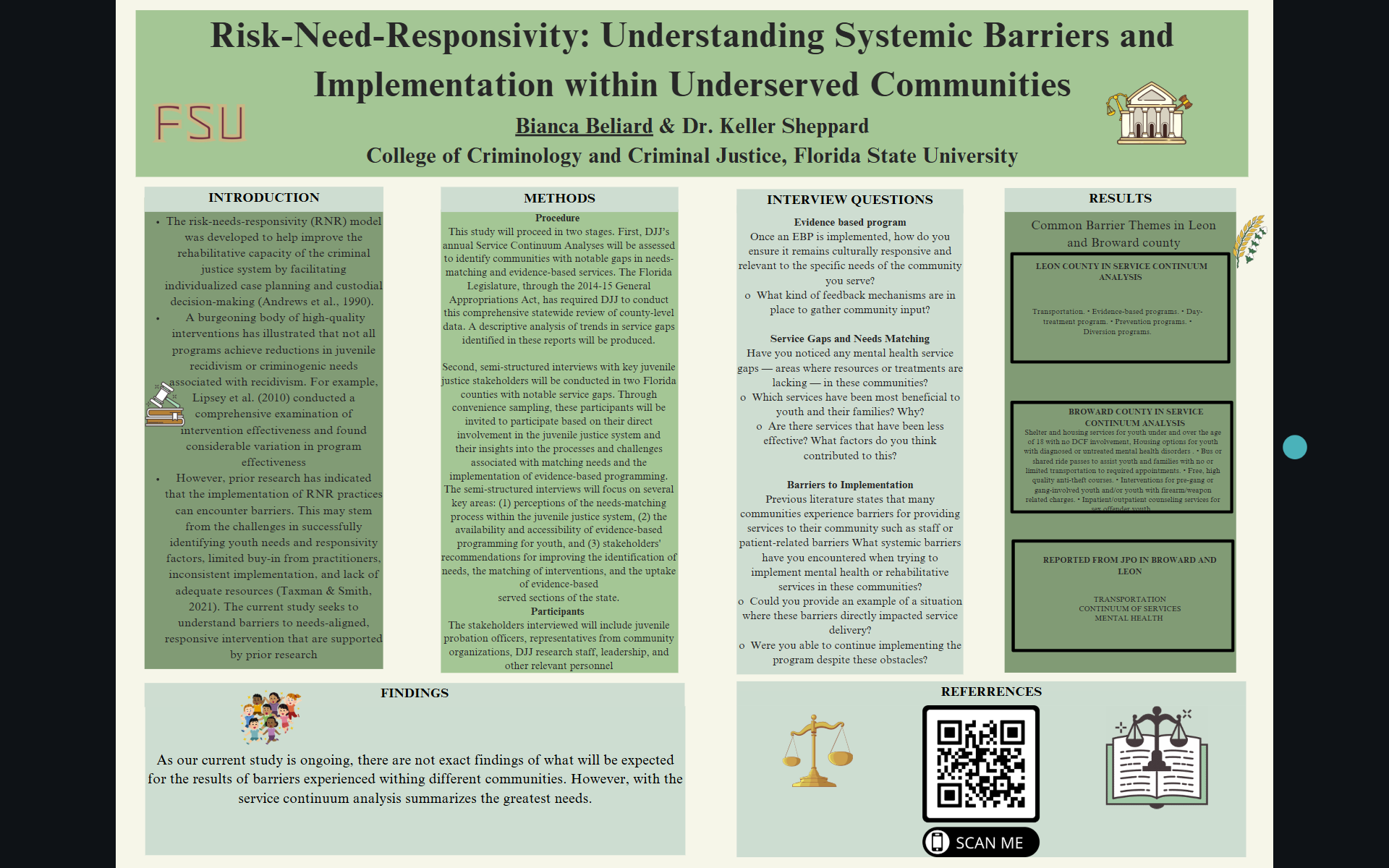Research Symposium
25th annual Undergraduate Research Symposium, April 1, 2025
Bianca Beliard Poster Session 4: 3:00 pm - 4:00 pm/ Poster #37

BIO
I am a double major in Criminology and Psychology with a certificate in SAS Programming and Data Analysis from Fort Lauderdale, FL. I aspire to be a Clinical Psychologist to provide culturally evidence-based programs in unfortunate communities. I am interested in doing more studies that deal with the mental health of minorities with interests in forensics.
Risk-Need-Responsivity: Understanding Systemic Barriers and Implementation within Underserved Communities
Authors: Bianca Beliard, Dr. Keller SheppardStudent Major: Criminology and Psychology
Mentor: Dr. Keller Sheppard
Mentor's Department: Criminology Mentor's College: College of Criminology and Criminal Justice Co-Presenters:
Abstract
The juvenile justice and human service organizations provide services to a population with considerable diversity in their social risk factors and most pressing service needs. Increasingly, juvenile justice systems have adopted the Risk-Need-Responsivity model to inform case management and custodial decisions. The Risk Needs Responsivity model is a framework that provides effective treatment to a specific individual. It will ensure that the youth will be matched with a program that addresses their criminogenic needs with proper intervention. However, prior research suggests that there are numerous barriers to implementing many essential components of the RNR model (risk-needs assessment instrument, continuum of care, evidence-based and needs-aligned interventions, etc.). This project seeks to examine the feasibility and fidelity of the RNR model across different systems and communities. To conduct this study, I will interview licensed clinicians and justice officials in different communities to view cultural responsivity to such barriers experienced. Also, I will do field observations of the children in the community to see how well they respond to the treatment. The findings of this study will increase more knowledge of youth in at-risk programs around the world and create an impact of reducing recidivism among youth.
Keywords: Evidence-based programs, Juvenile justice, Risk-Need-Responsivity, and Systematic barriers

